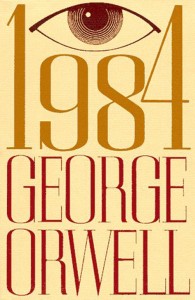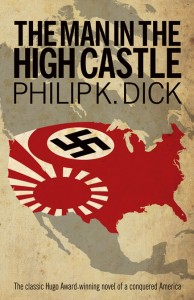This is by no means a comprehensive list. Good people in my social sphere have begun sharing a plethora of texts and media intended to educate, inform, and empower us in a historical moment flirting with fascism. As the EIU (Economic Intelligence Unit) warned, the United States slipped from “Full Democracy” to “Flawed Democracy” for the first time in 2016. As an understatement: climate change denial, gag-orders for the EPA, and the Keystone Pipeline getting green lit again are just a few items of terrifying news coming out of the Trump administration’s first days. So what can we do?
Arendt Had Her Finger on the Dangerous Pulse of Western Democracies
I would like to turn your attention to the featured image in this article. Hannah Arendt, in profile, her gaze distant, is seen in this broody black-and-white photograph smoking a cigarette. She wrote extensively on the rise of totalitarianism in Western democracies, particularly in Origins of Totalitarianism, so perhaps in her gaze she looks ahead to our own time. What is so striking about her political writing is her ability to feel the pulse of the current moment of “alternative facts” and the objectivity vertigo so many of us are feeling. Everything feels upside down. Even historically novel social innovations like anonymous leaks are now tainted with the stink of Soviet-era paranoia. In an ocean of reality tunnels, the case has been made that the digital world has made all possibilities plausible—there is no “up” or “down” anymore in the sea of “alt facts”:
“In an ever-changing, incomprehensible world the masses had reached the point where they would, at the same time, believe everything and nothing, think that everything was possible and that nothing was true. … Mass propaganda discovered that its audience was ready at all times to believe the worst, no matter how absurd, and did not particularly object to being deceived because it held every statement to be a lie anyhow. The totalitarian mass leaders based their propaganda on the correct psychological assumption that, under such conditions, one could make people believe the most fantastic statements one day, and trust that if the next day they were given irrefutable proof of their falsehood, they would take refuge in cynicism; instead of deserting the leaders who had lied to them, they would protest that they had known all along that the statement was a lie and would admire the leaders for their superior tactical cleverness.” “The ideal subject of totalitarian rule is not the convinced Nazi or the dedicated communist, but people for whom the distinction between fact and fiction, true and false, no longer exists.”
Of course there are facts. Reading Arendt right now can help show us what’s going on so we can be smarter, quicker, and catch things before too long and too late.
Orwell: Alternative Facts and Newspeak
The easiest addition to your physical—or digital—bookshelves is George Orwell’s 1949 dystopian novel 1984. Orwell’s exploration of a totalitarian state where there are no facts and language is diminished to “newspeak” in order to prevent complex, oppositional thought reignited the attention of Americans after Kellyanne Conway’s coining of the term “alternative facts” in a recent news interview.
The purpose of Newspeak was not only to provide a medium of expression for the world-view and mental habits proper to the devotees of Ingsoc, but to make all other modes of thought impossible. It’s a beautiful thing, the destruction of words…
Here is Orwell in 1984:
Is this the right world? Alt-facts, alt-worlds…
None may have a better prescience on our time than the now-renowned science fiction writer Philip K. Dick. It’s almost as if he knew the future, could see it, however hazy, in the decades of the mid-twentieth century. Many have praised his science fiction novels for examining motifs like truth and falseness, the flimsiness of reality and the “high weirdness” that could be hiding behind every corner. His stories are infamous for topsy-turvy reality twisting and what Rudy Rucker has coined, as a literary term, “slipstream” fiction. Phil Dick knew a world where facts were fluidic and the universe oscillated from a kind of “divine invasion” to a paranoid gnostic trap. A prophet of the postmodern age, his books continue to be adapted into film or television for their relevancy. Take The Man in the High Castle, which last year became the loose inspiration behind Amazon’s most popular show. This book explores an alternative history where the allied powers lost World War II and both Nazi Germany and the Empire of Japan conquered the United States. The book’s admixture of American patriotism and fascism took on a new relevancy in 2016’s presidential campaign and, upon Trump’s victory, shook many with a sense of vertigo—as if we had somehow stumbled into a dark, alternative history:
“On some other world, possibly it is different. Better. There are clear good and evil alternatives. Not these obscure admixtures, these blends, with no proper tool by which to untangle the components.”
The Man in the High Castle, like Phil Dick’s other novels, wrestles with the theme of living under Empire, false realities, and compulsion towards freedom and self-knowledge extended to its most gnostic and cosmic definitions. His worlds are often dark and confusing, but his characters are utterly human. In our time, we can relate and even feel empowered by the fictional struggles of his protagonists as they attempt to break free to the Real.
Not Enough Books
These are only three authors, and three books you can add to your 2017 reading list. But I’d like to also recommend Arendt’s On Revolution, which explores the struggle for political and social freedom, Philip K. Dick’s VALIS Trilogy, and Grant Morrison’s inspired The Invisibles, both which tackle the metaphysical dimensions of empire. I’m a firm believer that education is the cornerstone for literally anything else, including informed activism, community organizing and “consciousness raising” media creation. We don’t just need good meditators and mystical, liminal spaces but developed, critical minds to navigate the scarier, twilight passages through history. The first place to get engaged is our own minds, so crack open those books dear readers. Addendum: Get more current politics on lists like “Trump Syllabus 3.0” (which goes over about 15 weeks) over at Public Books, or Buzzfeed’s list of 17 books for the Trump Era.














